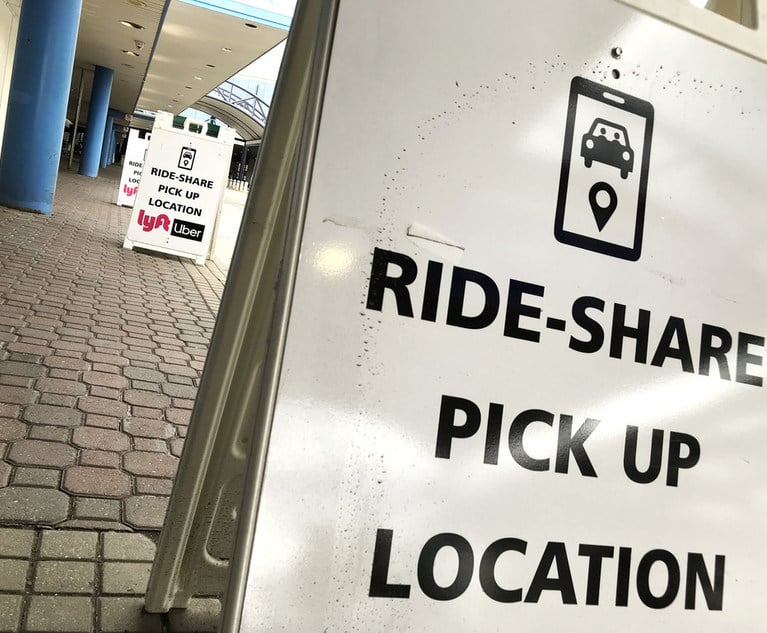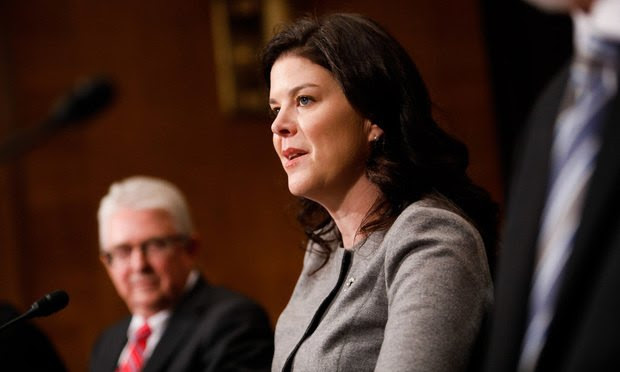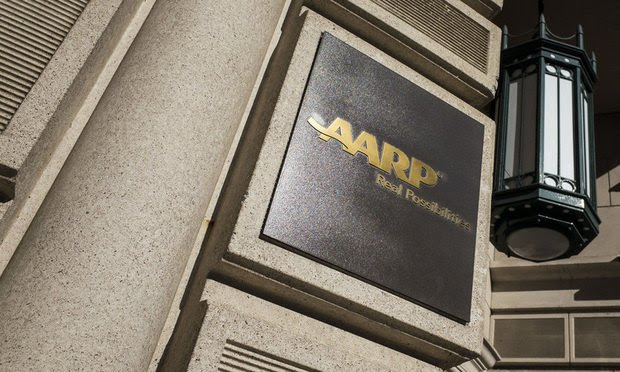Labor of Law: DOL Doubles Down on Oracle | Big Age Bias Ruling in 7th Circuit | Who Got the Work, Notable Moves & More
The US Labor Department is taking new steps in an Obama-era wage case against Oracle, and we've got the latest on a big age-bias ruling out of the 7th Circuit. Thanks for reading!
January 24, 2019 at 12:00 PM
8 minute read
Welcome to Labor of Law. The U.S. Labor Department is taking new steps in the Obama-era wage-discrimination case against Oracle, moving to amend its complaint. We unpack what it all means below. Plus: did you see the 7th Circuit decision saying the Age Discrimination in Employment Act only protects workers—not job applicants? Plus: Littler Mendelson expands further abroad, Barnes & Thornburg broadens its parental leave policy and the federal government's back pay tab is rising as the shutdown drags on. Scroll down for Who Got the Work, notable moves and more. Thanks for reading!
DOL's New Move Against Oracle
The U.S. Labor Department isn't backing down from a fight with Oracle America over alleged widespread pay inequities at the tech company.
An Obama-era case has dragged on since Jan. 2017, and now things are heating up. The Labor Department solicitor's office, citing an Office of Federal Contract Compliance Programs probe, moved to amend its complaint—bringing in new details from the investigation. Headlines screamed a big dollar amount—$400 million—that DOL alleged Oracle owed to female workers and minorities.
“Oracle's suppression of pay for its non-white, non-male employees is so extreme that it persists and gets worse over long careers,” the Labor Department's Laura Bremer, senior trial attorney, said in the court filing. “Female, black and Asian employees with years of experience are paid as much as 25 percent less than their peers.”
The moves by DOL's litigation team—led by Solicitor Kate O'Scannlain (above), the former Kirkland & Ellis partner in Washington—on the surface cut against the idea the Trump administration would be universally business-friendly. Seyfarth Shawpartner Annette Tyman said the Labor Department generally is still very much focused on pay issues. She said there has not been a slowdown in audits and settlements during the Trump administration.
>> What's new: The Labor Department moved to amend its complaint, saying that certain employment practices, including the use of prior pay, placement in lower positions and hiring tactics on college campuses, are contributing to the suppression of wages at Oracle among female and minority employees. Dorian Daley, general counsel to Oracle, bristled at the Labor Department's complaint.
“This meritless lawsuit is based on false allegations and a seriously flawed process within the OFCCP that relies on cherry picked statistics rather than reality,” Daley said. “We fiercely disagree with the spurious claims and will continue in the process to prove them false. We are in compliance with our regulatory obligations, committed to equality, and proud of our employees.”
>> How we got here: The DOL claims stemmed from a 2014 audit from the Office of Federal Contractor Compliance Programs. Oracle's lawyers at Orrick, Herrington & Sutcliffe have fought for months to dial back or otherwise toss out the claims. The team recently losts its latest bid to dismiss the case. Oracle's attorneys argued against the lawfulness of the Labor Department's administrative law judges, saying none of them were properly appointed and therefore can no longer preside over the agency's case.
>> What we're watching: The case will persist for many more months. One part of the Labor Department's filing that caught my eye: regulators contend Oracle's reported use of prior salary is contributing to gender and racial wage differences among workers.
Prior salary, of course, is at the heart of a pending case at the U.S. Supreme Court—Yovino v. Rizo. A team from Jones Day is trying to overturn a Ninth Circuit ruling that said employers cannot use prior salary to justify paying men and women differently for the same roles. The petition has been pending and relisted many times now—so it's not likely the court will take the case this term.
Former Labor Department Solicitor Patricia Smith, now senior counsel at the National Employment Law Project, was at the helm when the agency brought the Oracle case in 2017.
At the time, there was a move toward targeting pay disparity and discrimination for high-paid jobs, Smith said. Confronting the use of prior compensation, Smith told me, is one key in targeting wage disparities.
“It's the whole argument that discrimination perpetuates itself,” Smith said. “It's at the core of why there are arguments against looking at prior salary.”
Who Got the Work
>> A team from Greenberg Traurig represents Whole Foods Market Group in a former worker's pro se workplace discrimination and retaliation complaint in the Southern District of New York. U.S. District Paul Engelmeyer on Jan. 11 issued an order that kept alive the complaint. The Financial Times has more on the case here.
>> Oracle faces a class action claiming gender pay and promotion discrimination. The Guardian has more here. The class action claims that thousands of women were paid as much as $13,000 less than their male counterparts. Jim Finberg with Altshuler Berzon LLP represents the workers in the private lawsuit. A team from Orrick, Herrington & Sutcliffe, including Erin Connell, Jessica Perry and Gary Siniscalco, represent the company.
>> Carol Laughbaum of the Bloomfield Hills, Michigan, firm Sterling Attorneys filed a lawsuit in U.S. District Court for the Eastern District of Michigan on behalf of DeAnna Johnson, 54, who said she was subjected to sexual harassment as a production assistant at a Ford truck plant. The attorney previously won a more than $16 million settlement against Ford for sex harassment. Read the complaint here. The Detroit Free Press has more on the case here.
>> “Walmart Inc. will have to face a certified class of job applicants alleging it conducted background checks without their permission, a federal court ruled Jan. 17,” according to a report in Bloomberg Law. “Whether Walmart made disclosures required by the Fair Credit Reporting Act can be answered on a classwide basis, Judge David O. Carter wrote for the U.S. District Court for the Central District of California.” A team from Greenberg Traurig represents Walmart, and the Beverly Hills, California, firm Setareh Law Group represents the plaintiffs. Read the decision.
Notable Moves & Promotions
>> James J. Oh has joined Epstein Becker Green as a member in the employment, labor and workforce management practice in Chicago. Oh joins from Littler Mendelson, where he had served on its board of directors.
>> Ogletree, Deakins, Nash, Smoak & Stewart has elevated 17 attorneys to shareholder, including Shontell Powell in Atlanta; Derek Rollins in Austin; Colleen DeRosa and Katherine Manuel in Chicago; Alexander Chemers and Amber Rollerin Los Angeles; Cara Barrick, Brian Berry and Carolyn Knox in San Francisco; Sarah Kuehnel in St. Louis; and Grace Ristuccia in Washington.
>> Seyfarth Shaw announced the promotion of 24 of the firm's lawyers to partners, including: employee benefits partner Christina Cerasale in Chicago; and labor and employment partners Chantelle Egan in San Francisco; Kara Goodwin in Chicago; Christina Hendrickson in Chicago; Sharon Cook Poorak in Atlanta; John Quill in Boston; Courtney Stieber in New York; Megan Troy in Chicago; Simon Yang in Los Angeles.
Around the Water Cooler
>> A divided federal appeals court Wednesday issued a broad decision rejecting claims from a lawyer that he should be allowed as a job applicant to bring age-discrimination claims for an in-house position he was not offered. The en banc court, in a majority opinion written by Judge Michael Scudder, ruled against a lawyer named Dale Kleber. A team from Ogletree represented CareFusion, which turned down Kleber for a counsel post. The AARP Foundation Litigation represented Kleber. [NLJ]
>> Fast-growing Littler Mendelson found another right fit in Norway, its latest overseas destination, in 12-lawyer Oslo-based Homble Olsby. Littler added the 11-year-old labor and employment boutique to its global verein, gaining its first outpost in Scandinavia. The firm has expanded to France, the U.K., Italy, the Netherlands, and Belgium over the past three years. [The American Lawyer]
>> In a new policy dubbed “one for all,” Barnes & Thornburg is expanding its parental leave policy to cover all of its staff, not just its attorneys. The new policy provides 16 weeks of parental leave at 100 percent pay for all of the firm's employees, legal and nonlegal staff alike. [Law.com]
>> Lawsuits are piling up on behalf of federal workers forced to work without pay during what is now the nation's longest shutdown. Plaintiffs attorneys are fielding calls from thousands of workers and argue that forced work without pay is a clear violation of federal labor laws. [NLJ]
>> Meanwhile, “a new study estimated that workers affected by the shutdown will be owed $6 billion by the end of this week.” [The Washington Post]
>> “Glassdoor has become an important arbiter of employee sentiment in today's highly competitive job market. A Wall Street Journal investigation shows it can be manipulated by employers trying to sway opinion in their favor.” [WSJ]
>> NLRB general counsel Peter Robb is reportedly looking for a case to kill “Scabby the Rat,” the inflatable figure that often appears at protests. [BNA]
>> OSHA inspectors are now authorized by the Labor Department “to use camera-carrying drones as part of their inspections of outdoor workplaces.” [Cato Institute]
I'm Erin Mulvaney in Washington, covering labor and employment from the Swamp to Silicon Valley. Follow this weekly newsletter for the latest analysis and happenings. If you have a story idea, feedback or just want to say hi, I'm at [email protected] and on Twitter @erinmulvaney.
This content has been archived. It is available through our partners, LexisNexis® and Bloomberg Law.
To view this content, please continue to their sites.
Not a Lexis Subscriber?
Subscribe Now
Not a Bloomberg Law Subscriber?
Subscribe Now
NOT FOR REPRINT
© 2025 ALM Global, LLC, All Rights Reserved. Request academic re-use from www.copyright.com. All other uses, submit a request to [email protected]. For more information visit Asset & Logo Licensing.
You Might Like
View All
Labor of Law: As Workers Suffer With Long Covid, Employers May Rethink Accommodations for Other Disabilities

Labor of Law: Federal Noncompete Ban Would Be Far From Last Word on Issue

Labor of Law: New Federal Rule Could Upend State Efforts to Count Ride-Share Drivers as Contractors

Labor of Law: Employer Statements on Abortion Could Spur Discrimination, Hostile Work Environment Claims
Trending Stories
- 1Invoking Trump, AG Bonta Reminds Lawyers of Duties to Noncitizens in Plea Dealing
- 222-Count Indictment Is Just the Start of SCOTUSBlog Atty's Legal Problems, Experts Say
- 3Judge Rejects Walgreens' Contractual Dispute Against Founder's Family Member
- 4FTC Sues PepsiCo for Alleged Price Break to Big-Box Retailer, Incurs Holyoak's Wrath
- 5Greenberg Traurig Litigation Co-Chair Returning After Three Years as US Attorney
Who Got The Work
J. Brugh Lower of Gibbons has entered an appearance for industrial equipment supplier Devco Corporation in a pending trademark infringement lawsuit. The suit, accusing the defendant of selling knock-off Graco products, was filed Dec. 18 in New Jersey District Court by Rivkin Radler on behalf of Graco Inc. and Graco Minnesota. The case, assigned to U.S. District Judge Zahid N. Quraishi, is 3:24-cv-11294, Graco Inc. et al v. Devco Corporation.
Who Got The Work
Rebecca Maller-Stein and Kent A. Yalowitz of Arnold & Porter Kaye Scholer have entered their appearances for Hanaco Venture Capital and its executives, Lior Prosor and David Frankel, in a pending securities lawsuit. The action, filed on Dec. 24 in New York Southern District Court by Zell, Aron & Co. on behalf of Goldeneye Advisors, accuses the defendants of negligently and fraudulently managing the plaintiff's $1 million investment. The case, assigned to U.S. District Judge Vernon S. Broderick, is 1:24-cv-09918, Goldeneye Advisors, LLC v. Hanaco Venture Capital, Ltd. et al.
Who Got The Work
Attorneys from A&O Shearman has stepped in as defense counsel for Toronto-Dominion Bank and other defendants in a pending securities class action. The suit, filed Dec. 11 in New York Southern District Court by Bleichmar Fonti & Auld, accuses the defendants of concealing the bank's 'pervasive' deficiencies in regards to its compliance with the Bank Secrecy Act and the quality of its anti-money laundering controls. The case, assigned to U.S. District Judge Arun Subramanian, is 1:24-cv-09445, Gonzalez v. The Toronto-Dominion Bank et al.
Who Got The Work
Crown Castle International, a Pennsylvania company providing shared communications infrastructure, has turned to Luke D. Wolf of Gordon Rees Scully Mansukhani to fend off a pending breach-of-contract lawsuit. The court action, filed Nov. 25 in Michigan Eastern District Court by Hooper Hathaway PC on behalf of The Town Residences LLC, accuses Crown Castle of failing to transfer approximately $30,000 in utility payments from T-Mobile in breach of a roof-top lease and assignment agreement. The case, assigned to U.S. District Judge Susan K. Declercq, is 2:24-cv-13131, The Town Residences LLC v. T-Mobile US, Inc. et al.
Who Got The Work
Wilfred P. Coronato and Daniel M. Schwartz of McCarter & English have stepped in as defense counsel to Electrolux Home Products Inc. in a pending product liability lawsuit. The court action, filed Nov. 26 in New York Eastern District Court by Poulos Lopiccolo PC and Nagel Rice LLP on behalf of David Stern, alleges that the defendant's refrigerators’ drawers and shelving repeatedly break and fall apart within months after purchase. The case, assigned to U.S. District Judge Joan M. Azrack, is 2:24-cv-08204, Stern v. Electrolux Home Products, Inc.
Featured Firms
Law Offices of Gary Martin Hays & Associates, P.C.
(470) 294-1674
Law Offices of Mark E. Salomone
(857) 444-6468
Smith & Hassler
(713) 739-1250











